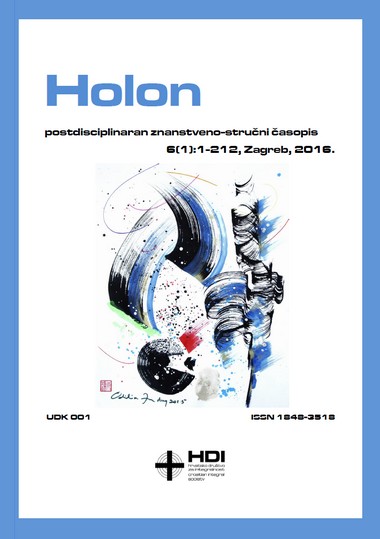Relikvije buduće prošlosti: prazni dom penzionera u Bihaću
Relics of the future past: The empty retirement home in Bihać
Author(s): Azra Hromadžić, Lejla ČavkićSubject(s): Human Geography, Culture and social structure , Social development, Human Ecology, Rural and urban sociology
Published by: Hrvatsko društvo za integralnost
Keywords: emptines; transition; property; socialism and postsocialism; war and postwar peace; materiality; ethnography; Bosnia and Herzegovina; Bihać
Summary/Abstract: In this article we explore the gap between the dominant discourse of transition/privatization and postsocialist living realities in Bosnia and Herzegovina. In Bosnia and Herzegovina, the process of economic and political transition is further complicated by the burden of war, so that in the Bosnian case we speak of a “double transition”: from war to “peace“ and from socialism to capitalism. Inspired by our ethnography of emptiness and by the photo essays “Junkyards of the Future Past” (De Genova, 1997) and “Days of Destruction, Days of Revolt” (Hedges & Sacco, 2012), in this article we analyze the effects of the Bosnian “transition” through the prism – more specifically genealogy and biography – of one “empty” institution in Bihać. This building is a never completed retirement home in the center of postwar and postsocialist Bihać, a city on the northwestern edge of the country. The building remains eerie, semi-empty and skeleton-like, a shadow and a symbol of the unmaterialized socialist past and the corrupt, perpetually transitioning and privatizing present. Ethnographic focus on the building, and not on a “place” or a “population,” is conscious, and it reflects the importance of material objects in the context of larger transformations of collective and state ownership. Specifically, we place this huge, abandoned and ghostly building in the sphere of political economy, in the anthropological, therefore broad and contextualized, meaning of that concept. In short, we use an empty building as an analytical and hermeneutic “tool” with which to grasp, describe, and explain the effects of postwar and postsocialist “transitions” on “people and objects” in the context of Bihać and beyond.
Journal: Holon
- Issue Year: VI/2016
- Issue No: 1
- Page Range: 77-99
- Page Count: 23
- Language: Croatian

